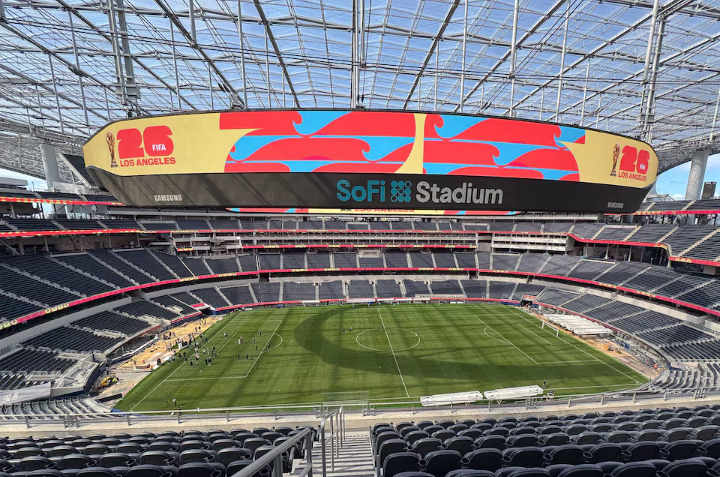As the countdown begins for the FIFA World Cup 2026, excitement is brewing in North America. But in the United States—one of the three host nations—growing political tensions and immigration crackdowns are casting shadows over what should be a historic moment for global football fans.
The tournament, set to feature a record 48 national teams across 104 matches, is jointly hosted by the U.S., Canada, and Mexico. Major cities like Los Angeles, New York, Miami, and Philadelphia are preparing to welcome fans from around the world. Yet, U.S. President Donald Trump’s recent deployment of U.S. Marines and National Guard troops to Los Angeles to suppress immigration-related protests has sparked global concern—especially among fans from abroad.
California Governor Gavin Newsom criticized the deployment, calling it a dangerous move toward authoritarian rule. Meanwhile, the Trump administration insists it’s a necessary step to restore order, blaming local officials for failing to control protests.
These developments are raising questions about how international fans will be treated during the tournament, particularly after a controversial travel ban went into effect this week. The new ban restricts travelers from 12 countries—only Iran, among them, has currently qualified for the 2026 World Cup. Iranian officials have already called the ban a sign of “deep hostility” towards Muslims and their nation.
At a red-carpet event in Los Angeles to mark the “One Year to Go” milestone, global soccer stars and celebrities joined the festivities, but the underlying tension couldn’t be ignored. Across the country in New York-New Jersey, host city committee CEO Alex Lasry expressed optimism:
“Our goal is to make sure everyone who comes here has an incredible time… We’re planning within uncertainty, but committed to being ready.”
Minky Worden, Director of Global Initiatives at Human Rights Watch, didn’t hold back. She urged FIFA to set clear benchmarks for ensuring immigrant and human rights are respected during the World Cup.
“FIFA should publicly acknowledge the threats posed by current U.S. policies and demand changes to protect everyone involved—players, fans, and staff alike,” she said.

While FIFA President Gianni Infantino remains publicly confident—saying after a meeting with Trump that international guests will be welcomed—he faces a growing challenge of perception management. FIFA has not responded to specific questions about how they plan to address these political concerns.
Host city officials, including those in Miami and Philadelphia, have begun holding meetings with local consulates and law enforcement to ensure security and smooth logistics. However, many say their influence doesn’t extend to national immigration policies.
“My responsibility is to ensure safety, logistics, and readiness,” said Miami host committee head Alina Hudak. “What’s happening nationally is out of my control.”
With just a year to go before kickoff, fans, officials, and human rights advocates alike are watching closely. The question remains: Can the United States deliver a World Cup experience that is both safe and truly welcoming for all?



